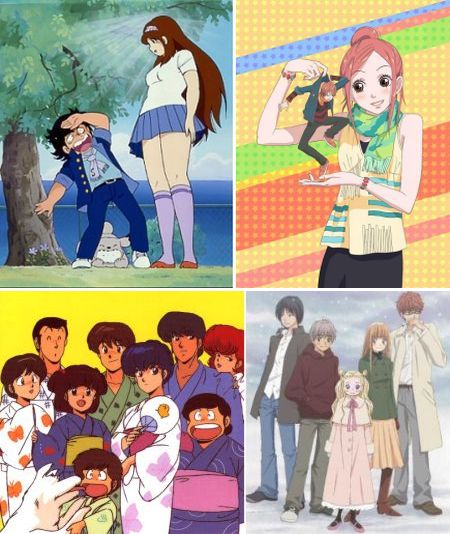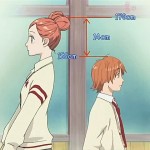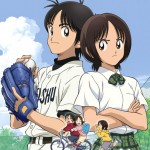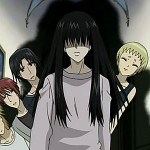Ask John: Are There Any More 80’s Style Rom-Coms?

Question:
For a variety of reasons, I have long since lost all interest in anime and manga. I loved Maison Ikkoku and Kimagure Orange Road and wanted to know if there is anything even remotely similar to them in the recent past or present, though I suspect that kind of story and style died when the 80’s ended.
Answer:
The 1980s and early 90s provided a rather large choice of humorous romantic dramas that concentrated on narrative and character development: The Kabocha Wine, Maison Ikkoku, One Pound Gospel, Kimagure Orange Road, Touch, Slow Step, Hiatari Ryoko, Marmalade Boy, Hoshikuzu Paradise, and Shiratori Reiko de Gozaimasu, to name a few. As anime has evolved and the tastes of viewers has changed, and increasing number of romance anime have shifted focus onto exploitation or sensationalism. Maison Ikkoku included a prominent character usually clothed in transparent lingerie, but fan service was never a prominent goal for the series. Orange Road included ESP and the supernatural; Video Girl Ai and DNA² included sci-fi elements but never allowed those characteristics to superscede the primary character-centric narrative the way contemporary romantic comedies like To-love Ru, Kanokon, Princess Lover, Natsu no Arashi!, and Fight Ippatsu! Juden-chan!! do. Or contemporary shows including Nogizaka Haruka no Himitsu, True Tears, and Nodame Cantabile that don’t succumb to excess pandering still don’t quite have the same feel and atmosphere of romantic dramas from the 80s. I’m not suggesting that contemporary incarnations of the romantic comedy/drama don’t have their own unique charms and appeal. I’m only arguing that viewers searching for a contemporary reincarnation of Maison Ikkoku or Orange Road probably won’t find that in many of today’s romance anime. However, that’s not to say that the past five years have been entirely devoid of anime typified by the same attitudes and approaches that characterized 80’s and 90’s romance anime. In fact, there are contemporary romantic dramas and comedies that may arouse some nostalgic affection in viewers.

2009’s Kimi ni Todoke leaps to mind as a warm, sweet, and charming conventional romance between a tentative boy and girl and the people that surround them, both encouraging and hindering the gradually developing romance. In addition to its relaxed pace and entire absence of gratuitous fan service, KimiTodo also employs a soft, watercolor design aesthetic that’s not like 80’s anime but also isn’t immediately associated with contemporary anime. Viewers expecting a conclusive or significant narrative climax may be left unfulfilled by the show, but KimiTodo is only 25 episodes with a sequel on the way while Urusei Yatsura was 218 episodes that offered no more definitive progress to its primary romance than KimiTodo does. It’s not the ending that’s important; it’s the story along the way.

The Love Com television anime is, in part, a reincarnation of 1982’s romantic comedy drama The Kabocha Wine. Both series revolve around a tall, sweet girl attracted to a short, antagonistic and masculine boy. Love Com does have a brisker pacing than typical 80’s romantic dramas and some appreciable influence from contemporary anime, but it also has the sort of expressive visual and situational humor characteristic of 80’s and 90’s school anime like Stop Hibari-kun and Kodomo no Omocha. In effect, Love Com seems to exist as an 80’s school romantic comedy produced in 2007, merging both 80’s and 2000’s characteristics.

If Love Com is the half-way transition between the 80s and 2000s, Honey & Clover is the graduate, the 80’s romance that has matured and fulfilled the promise of dignified, moving, charming, and engaging character development-centric romantic drama that Maison Ikkoku pioneered. While visually and tonally similar to Nodame Cantabile, Honey & Clover forefronts its romance aspects much more prominently than Nodame Cantabile, or, for that matter, Ristorante Paradiso, does. The charming humor of Honey & Clover is expressed through both character reactions and lightly exaggerated situational humor. The characters, like those of Maison Ikkoku, are adults or young adults faced with the difficult realistic burdens of real human relationships and interactions. Honey & Clover certainly doesn’t look like Maison Ikkoku, but it emulates the great music, excellent ensemble character dynamic, and engaging personality that Maison Ikkoku had.

Cross Game is as much a baseball anime as it is a romantic drama. It’s the latest anime based on manga by Mitsuru Adachi, whose Touch, Slow Step, Hiatari Ryoko, and H2 defined sports romance dramas an otaku generation or two ago. So fans of those earlier titles will find much to like in 2009’s Cross Game. Similarly, the 2008 Itazura na Kiss anime is a contemporary production, but it’s based on a 1991 manga, so it’s characterized by a narrative tone that’s closer to Marmalade Boy than Baka to Test to Shoukanjuu and Angel Beats.
 Apart from its visual gags, 2006’s Yamato Nadeshiko Shichihenge doesn’t obviously bear many similarities to 80’s and 90’s romantic anime, but I can’t resist guessing that it may still appeal to fans of 80’s and 90’s romance shows. This adaptation of Pygmalion doubles the number of refined gentlemen charged with transforming a goose into a swan, and adds a bishounen characteristic more associated with Fushigi Yuugi and Angelique than Orange Road and Maison Ikkoku. But the story’s concentration on character development and its generous implementation of 80’s style sight gags may make immediately appealing to nostalgic otaku.
Apart from its visual gags, 2006’s Yamato Nadeshiko Shichihenge doesn’t obviously bear many similarities to 80’s and 90’s romantic anime, but I can’t resist guessing that it may still appeal to fans of 80’s and 90’s romance shows. This adaptation of Pygmalion doubles the number of refined gentlemen charged with transforming a goose into a swan, and adds a bishounen characteristic more associated with Fushigi Yuugi and Angelique than Orange Road and Maison Ikkoku. But the story’s concentration on character development and its generous implementation of 80’s style sight gags may make immediately appealing to nostalgic otaku.
Finally, I’ll readily admit that I haven’t watched enough of the Bokura ga Ita (2006) and Hanasakeru Seishounen (2009) television series to discuss them in depth or aggressively recommend them. However, Bokura ga Ita bears some similarity in tone and style to Kimi ni Todoke and Honey & Clover so may be worth investigating. I’m not certain that I can precisely define why, but the first episode of Hanasakeru Seishounen gave me a strong impression of a retro 80’s or early 90’s anime.

Add a Comment
You must be logged in to post a comment.


I don’t remember Bokura ga Ita being much of a comedy… it’s alright, but the similar Kimi ni Todoke is leaps and bounds better (and funnier) than it.
I’ve seen and enjoyed many of the series mentioned here, but it never occurred to me to think of them as “80s-style”. I think of them as shows targeting a wider demographic than say, Clannad, Ef or JC Staff anime (ToraDora, etc.) which targets male otaku in particular, or their bishounened-up equivalents on the other side of the demographic spectrum.